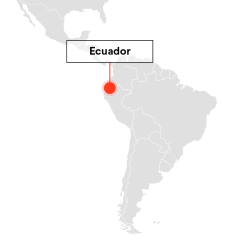Improve access to justice and legal services

Improve access to justice and legal services
Case Studies

“Flowers in the Air” (“Flores en el aire. Cartografia para la memoria de victimas de feminicidios”) is an initiative established by Spotlight Initiative in 2021 to provide symbolic reparations, raise awareness and understanding, and help to provide justice for the families and friends of women and adolescents who have been killed through femicide.
This initiative worked with victims’ loved ones to map out the lives of these women. They did this by walking through places of significance to the memory of these women and used a digital tool to map these walks and document the memories associated with them. For example, the mother of Christina, a woman who was killed, produced short videos, voice clips and text talking about Christina’s favourite places to go, her work as a volunteer for abandoned animals, how she was murdered by a former co-worker, the fight to find her body, and the long and costly trial that followed. Each clip is associated with a point on the map.
In March 2022, the initiative launched an interactive website that enables visitors to follow these “memory maps”. The website has since been integrated into awareness raising activities undertaken by the Attorney General’s Office. Of particular note, since its launch, the tool has been used in training for at least 374 prosecutors and shared among over 2000 individuals working within the Justice Sector. A review of the training provided to prosecutors found that exploring the website through training had helped build empathy among prosecutors, reinforced the importance of timely sentences and greater investments to stop impunity, highlighted the need for social welfare for families (especially orphans), and increased understanding that GBV is an act of sexist violence that can occur regardless of the victim’s social status.








